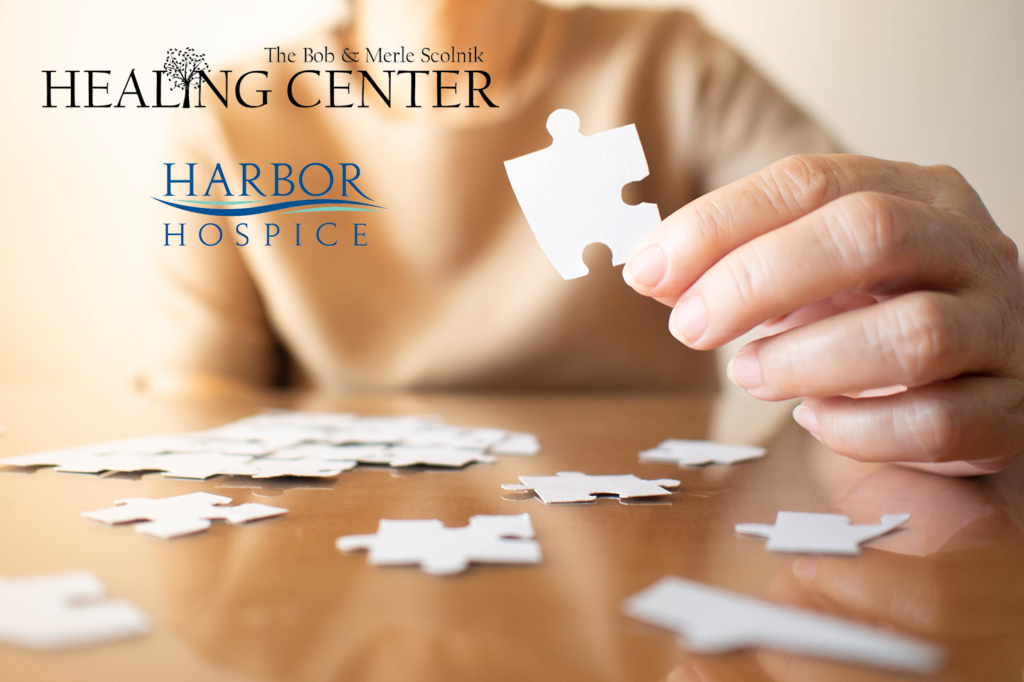The word “cope” is a generic term that can sound as though someone is simply managing, or getting by as best they can. Many times that is an appropriate way to look at how we are dealing with disappointments, setbacks and challenges in daily life. However, it may be time to change the way we think about coping so we can increase a sense of meaning or purpose regardless of our circumstances.
At the Bob & Merle Scolnik Healing Center of Harbor Hospice we started using a new tool to assess how a person copes with loss. The “CABLE” (Coping Assessment for Bereavement and Loss Experience, Crunk, 2019) is a way to identify how we currently deal with grief as well as uncover alternative ways to handle losses.
When we use the word “loss,” it is important to recognize that most of life involves loss. It could be a death, a change in health or level of independence, stress involving an adult child, losing a beloved pet, or moving from our home into some type of senior housing – each of these things (and many others) are connected to a loss of some kind.
The CABLE is a research-based questionnaire that offers 28 specific strategies for coping with grief. It is used primarily for helping someone manage and adapt to life after the death of a loved one. Some of the items listed are not often regarded as a coping strategy yet could be considered to help us cope with any type of loss.
For example, telling someone how much we love or care for them, offering an act of kindness, or nurturing someone else are ways to cope. At first these may not seem helpful when we are grieving, yet think about how good it feels when you express love or kindness to another and the sense of warmth and caring that comes back into your own heart. It helps us feel we are not alone in the world and gives us opportunities to experience a sense of purpose.
Reminding ourselves of our positive qualities and strengths is another way we can constructively cope with life’s challenges. If you need a nudge to think of specific traits, check out the free Character Strengths profile at http://www.viacharacter.org/character-strengths. It will affirm the many good qualities you already have!
Volunteering can be another healthy and life-affirming way to cope. It reinforces our sense of purpose and the value we bring to our world, and it provides encouragement to our own hearts and minds.
As seniors, coping with challenges in our lives does not have to be “just getting by.” We have an opportunity to be intentional about our choices and the ways we influence others. The boomerang effect that it has on our own well-being can leave a profound and lasting impact that gives us renewed energy and a path to joy regardless of our circumstances.
References:
- Crunk, E. (2019, June). The coping assessment for bereavement and loss experiences (CABLE): Development and validation of a new scale for assessing grief coping strategies. Symposium conducted at Webinar presented for the Association of Death Education and Counseling
- Learn Your 24 Character Strengths: Free VIA Character Survey. (n.d.). Retrieved from http://www.viacharacter.org/character-strengths
Article published in Senior Perspectives Sept-Oct Issue (distributed and published by Senior Resources)
About the author
Beth Bolthouse, a Bereavement Counselor for the Scolnik Healing Center of Harbor Hospice has been in her counseling profession for 16 years. Currently obtaining her Master of Science in Thanatology at Marian University, she is an avid lover of her dogs, the arts, and West Michigan.
Harbor Hospice serving the West Michigan lakeshore. Their agency has provided hospice care and support programs to residents in a five-county area for over 35 years.

